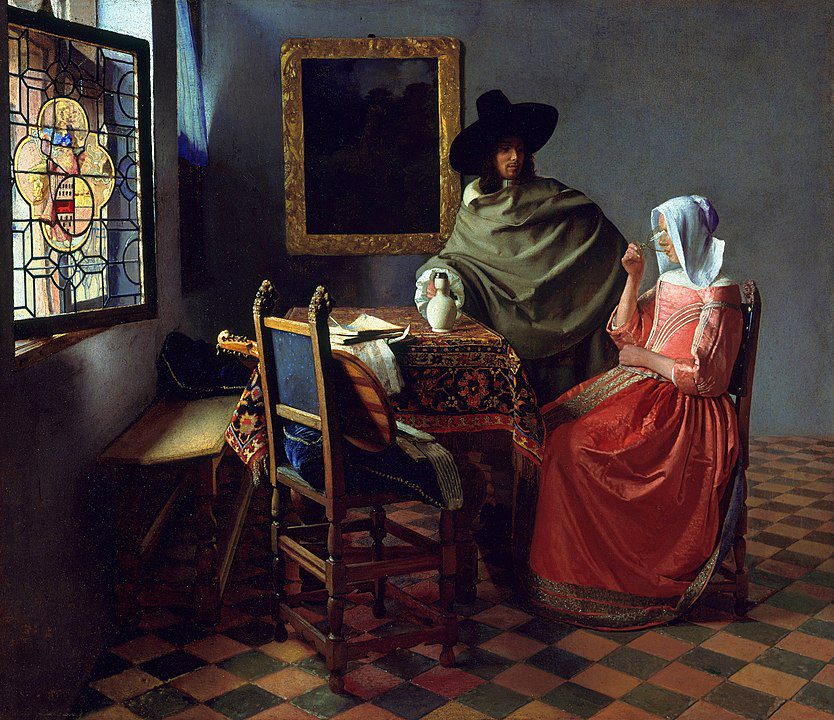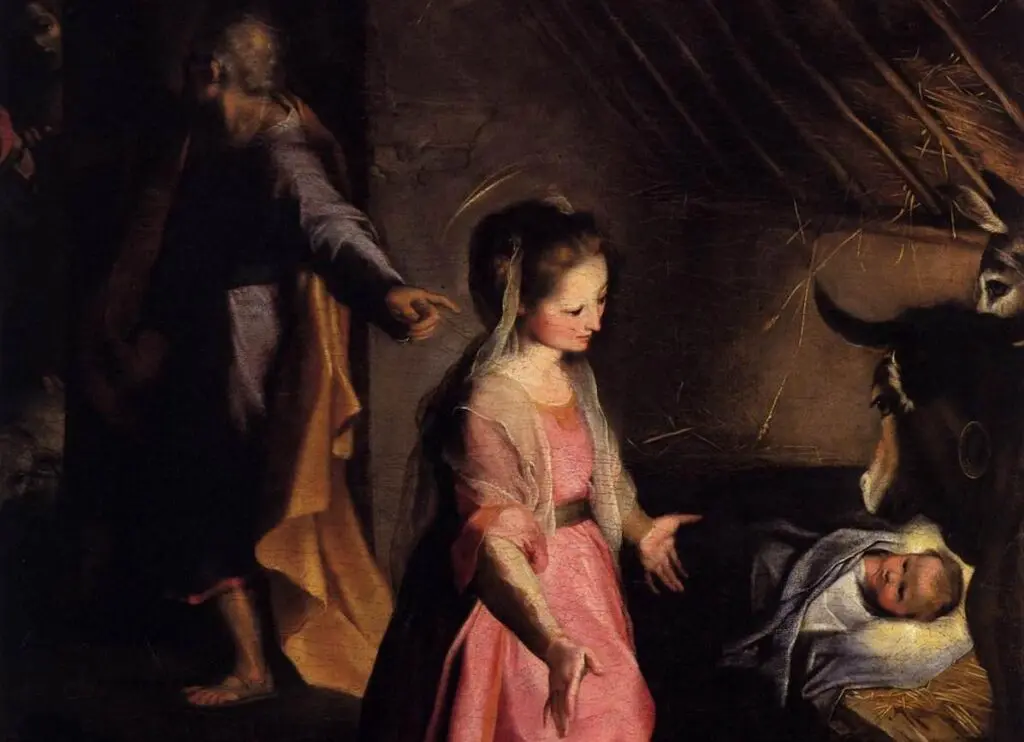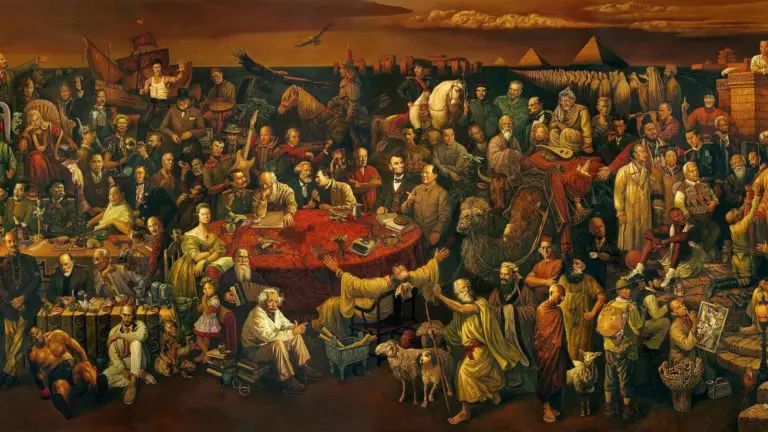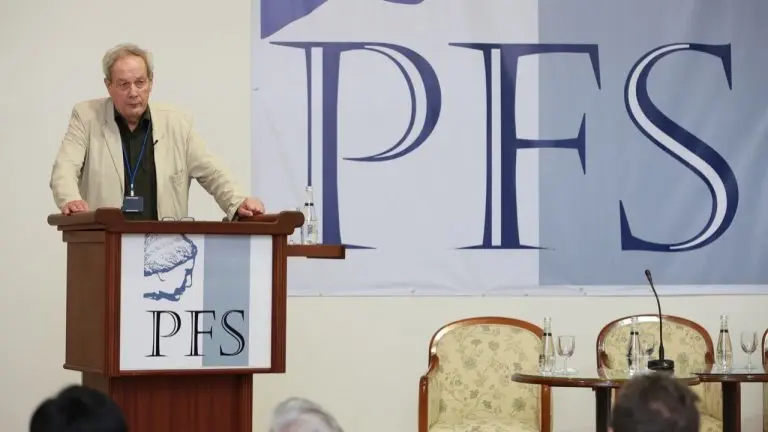The Jewish philosopher and theologian Martin Buber famously claimed that there was a particular epistemic disorder that characterised the modern mind, and he identified this disorder as the predisposition to view everything that should be understood as a “You”—either actually or by analogy—as an “It.” The “I-It” relation, as he called it, reduces a thing to an instance of its kind, rather than seeing it as a unique object seen under the guise of a subject. This way of relating to the world also reduces that which is “encountered” as worthy of “contemplation,” to use Buber’s chosen terms, to that which is merely “experienced” as “useful,” or a thing from which one can draw some practical information. Everything in this way of relating, therefore, is reduced to an object of utility or instrumentalization.
I can think of nothing more blasphemous than reducing Jesus Christ Himself to an It, an object of use for some ideological or propagandistic end. Such a blasphemy, however, is exactly what Cambridge University researcher Joshua Heath committed when he claimed that the Lord transgendered Himself on the Cross. The great truth is that when Christ had indeed been reduced to a pure object of use upon Calvary, he revealed that He was a means to nothing other than Himself. He is—it turned out—the end for which we are made, and beatitude is found only in union with Him. Thus, by making the crucified Lord a mere means to make an ideological point, to advance a movement for which Heath is an activist, Heath united himself to the crowd shouting, “crucify him!”
Perhaps we first discover that Jesus Christ is an end, a “You” in Buber’s idiom, when we encounter him at his crib in the cave. We see this when the gentile priests come from the East bearing their gifts, showing the world that all natural religion must be assumed and superseded by the true religion of the Eternal Word, as they prostrate themselves before the baby who stirs in the straw. At that moment, He was revealed as the “Eternal You” incarnate. This Light of the World was exquisitely captured by the nativity scene of Barocci, as the child emanates rays that illumine the Blessed Virgin, who was redeemed and sanctified by the Cross before the Cross, spotless only in His perfection. Amidst the darkness of that cave, indeed the darkness of the world, a light has been kindled.

Before the arrival of the Magi, however, the shepherds came to Him. John Henry Newman, in his Christmas sermon, wonders at this choice of the angels to go first to the Shepherds:
Why should the heavenly hosts appear to these shepherds? What was it in them which attracted the attention of the Angels and the Lord of Angels? Were these shepherds learned, distinguished, or powerful? Were they especially known for piety and gifts? Nothing is said to make us think so. Faith, we may safely say, they had, or some of them, for to him that hath more shall be given; but there is nothing to show that they were holier and more enlightened than other good men of the time, who waited for the consolation of Israel. Nay, there is no reason to suppose that they were better than the common run of men in their circumstances, simple, and fearing God, but without any great advances in piety, or any very formed habits of religion. Why then were they chosen?
Newman is mystified as to why such people should have been chosen by the heavenly host. Certainly, the shepherds were a fitting choice, given the Lord’s mission as the Good Shepherd, whose judgment would ultimately separate the sheep from the goats. But Newman concludes that there was another, perhaps deeper reason for the choice of the angelic messengers to appear first to those rural folk on the hillside: “for their poverty’s sake and obscurity.”
In the image of those angels—“who excel in strength,” Newman says—hastening in service of the lowly shepherds, we see a reflection of the “especial love” of our heavenly Father towards those who live in poverty and obscurity:
Almighty God looks with a sort of especial love, or (as we may term it) affection, upon the lowly. Perhaps it is that man, a fallen, dependent, and destitute creature, is more in his proper place when he is in lowly circumstances, and that power and riches, though unavoidable in the case of some, are unnatural appendages to man, as such… in God’s sight greatness is less acceptable than obscurity.
God encounters us amidst the ordinary humdrum tasks of life. Newman tells us that as the shepherds were
thinking of nothing but earthly things, counting over the tale of their sheep, keeping their dogs by their side, and listening to the noises over the plain, considering the weather and watching for the day—suddenly [they] are met by far other visitants than they conceived.
Now He has entered the world, nothing is truly ordinary and nothing is really humdrum. One sees this truth in the paintings of Vermeer. Vermeer was a devout Christian, and he devoted his talents to showing us how the sacred is present in the quotidian. Vermeer reveals that the ordinary event of pouring milk or trying a new wine is in fact pregnant with meaning and purpose in a world gripped by a supernatural drama. Here below, where the permeation of the temporal sphere with grace crumbles the walls of the devil’s fortress, nothing is mundane, and everything is hopeful, since we are told that his gates will not withstand the hallowed assault.


By such hope, the joy of the Christian is lived as a virtue. And Newman tells us that the festival of Christmas is a festival of joy before anything else. The angel wants the shepherds to feel this joy, and so he greets them with the words, “Fear not, for behold I bring you good tidings of great joy!” They must not fear. They must be joyful. Newman continues:
A little religion makes us afraid; when a little light is poured in upon the conscience, there is a darkness visible; nothing but sights of woe and terror; the glory of God alarms while it shines around. His holiness, the range and difficulties of His commandments, the greatness of His power, the faithfulness of His word, frighten the sinner.
Decades later, on seeing a glimpse of the Lord’s power, St. Peter will exclaim: “Depart from me, for I am a sinful man!” When fallen man encounters the glory of God, the natural response is to be fearful and run. But the way the modern mind deals with the glory of God that so makes it shudder, is to reduce God to a mere means, an instrument to be used, an It. “Pray,” the modern tells us, “so long as it lessens stress.” “Worship Jesus if you must,” he’s pleased to say, “so long as it makes you nicer.” “I don’t mind Christianity,” the modern will tolerantly remark, “Jesus would have been a transgender activist today, anyway.”
Thus, the modern mind, which reduces everything to a means—a mere apparatus of use—subordinates even God to such a perverse conception of reality. The modern mind has habituated the privileging of doing, and as such has forgotten how to be. Having neglected how to be, the modern certainly cannot be with God.
It is to be that Newman calls us in his Christmas sermon. He asks us to do nothing other than be with the Lord. The Lord is not with us for any reason extrinsic to Himself. He is the reason for coming to us, being with us, dying for us, and rising in glory to remain with us for all eternity. As Newman puts it:
Let us steadily contemplate the mystery, and say whether any consequence is too great to follow from so marvellous a dispensation; any mystery so great, any grace so overpowering, as that which is already manifested in the incarnation.
On Christmas Day, I always take the children and kneel with them around the crib in church after Holy Mass. Sometimes they ask questions about the figures gathered around the manger. I answer them as best I can. But I don’t take them there as a ‘teaching tool.’ There is no other reason to kneel at the crib than to be with Jesus for the sake of Him. If we cannot take anything else from this great festival, let us at least begin the process of breaking free from the “It-World,” as Buber called it. By remaining with the God who lays swaddled in the manger, we may take the first step into that world whose cause Barocci showed us and whose everyday effects Vermeer disclosed—a world which the Eternal Word has entered, and now nothing is the same.





